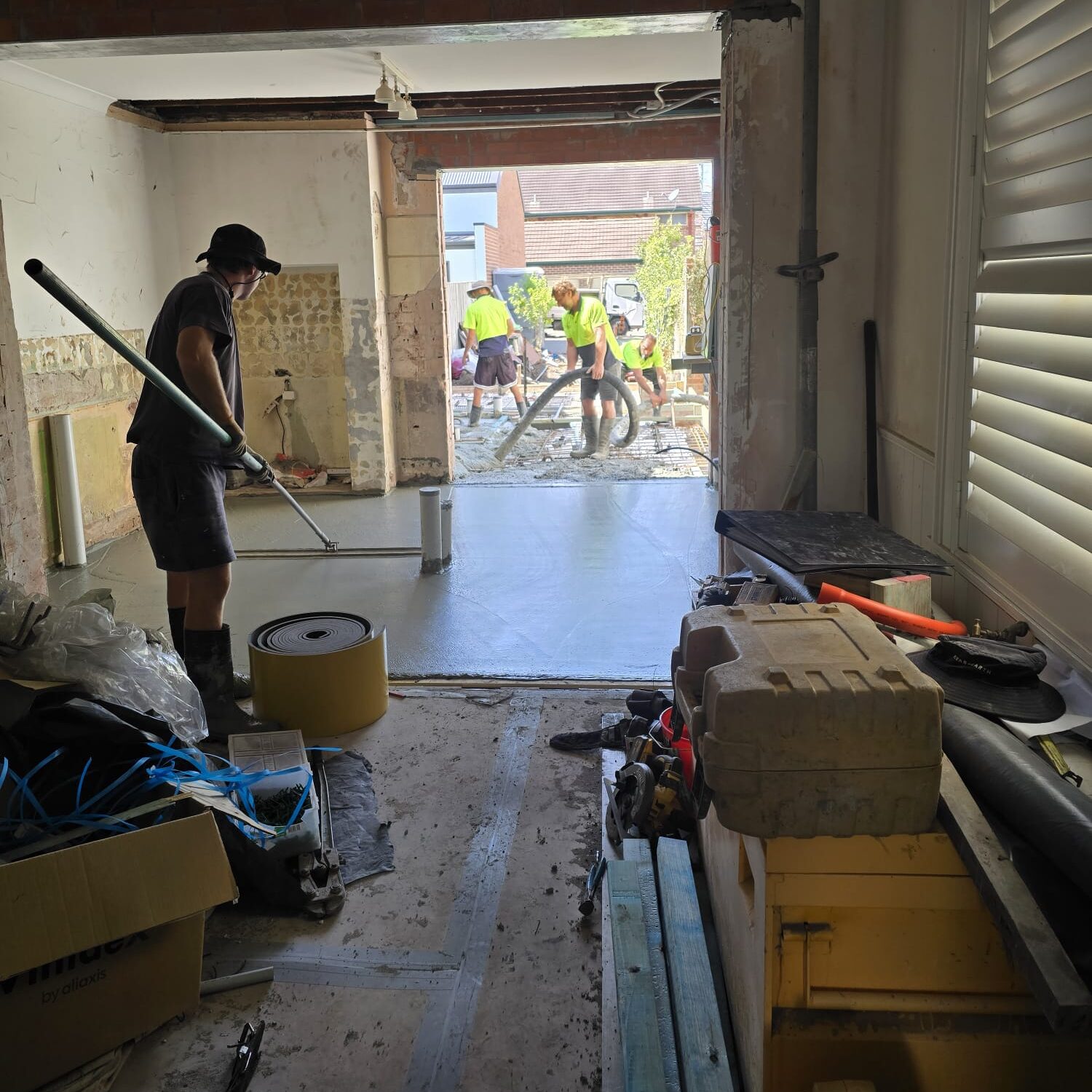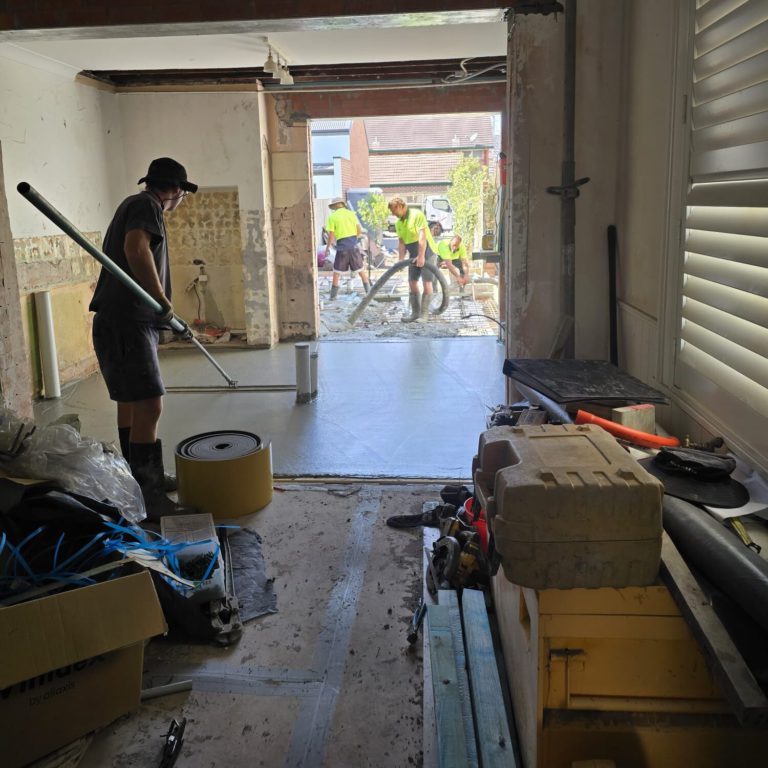Are you preparing to install a shed slab, build a new driveway, or lay footings for a home extension? If so, you may have encountered the term “cement pump.” But what does this entail, and why is it critical for your construction project?
This comprehensive guide provides valuable insights into hiring a cement pump and demonstrates how utilising one can significantly enhance your next concrete pour by streamlining the operation, maintaining cleanliness, and boosting overall efficiency throughout your project.

Clarifying the Key Differences: Cement Pump vs. Concrete Pump Explained
In the construction industry, it’s common for individuals to mistakenly interchange the terms cement and concrete. Consequently, when someone refers to a cement pump, they are often talking about a concrete pump. This advanced machinery is specifically engineered to transport mixed concrete directly from the delivery truck to the exact location required for your project.
Concrete pumps are invaluable tools in various scenarios, including:
- Delivering concrete to hard-to-reach locations, such as behind a house or in confined spaces
- Eliminating the need for wheelbarrows, which minimises strenuous manual labour
- Ensuring a cleaner and more organised job site
There is no dedicated machine that solely pumps cement, as cement is merely one component of the concrete mix. Therefore, when you’re preparing to pour a slab or set footings, what you genuinely require is a concrete pump. For residential projects, a line pump is typically the most popular and effective choice.
Recognising Scenarios Where a Cement Pump is Absolutely Essential
If you find yourself in any of the following situations, considering the use of a cement pump (or more accurately, a concrete pump) is crucial for saving considerable time, effort, and reducing mess:
- Pouring a shed slab in your backyard
- Replacing a worn-out driveway that has deteriorated over years
- Installing footings for a deck or a granny flat
- Working in tight access or confined spaces where movement is restricted
In these scenarios, using a concrete pump can undoubtedly optimise your project. By employing a pump rather than relying on wheelbarrows or attempting to pour directly from the truck, the concrete can be accurately transported to where it is needed, even if that location is over 30 metres away from the road.
Essential Steps to Effectively Hire a Cement Pump (Concrete Pump)
Securing a concrete pump may be a relatively straightforward process, but ensuring you make the right decision can help you avoid unnecessary challenges. Here’s a clear and effective guide to assist you in this endeavour:
1. Clearly Define the Details of Your Pouring Project
Are you pouring a slab, establishing footings, or constructing pathways? Gaining a precise understanding of your project’s specifics will facilitate selecting the appropriate pump size and configuration tailored to your requirements, ensuring optimal performance during the pour.
2. Accurately Calculate Your Required Pour Volume
Determine your required volume in cubic metres using the formula (Length × Width × Depth in metres). If you are uncertain about performing these calculations, our knowledgeable team is more than happy to assist you, ensuring you account for any potential overrun. Here is a guide on how to accurately calculate the amount of concrete you will need for your project.
3. Assess Your Access Points for Concrete Delivery
Can we access the site with a hose line? Is there sufficient space for a concrete truck? It is essential to communicate any access limitations so we can effectively plan, ensuring smooth operations and avoiding delays during your project timeline.
4. Schedule the Pump (Including Concrete Supply and Labour Services)
At Hunter Concrete Pump Hire, we provide comprehensive support, including coordinating the concrete supply, labour, and the pump — all in one seamless package, enhancing your overall experience and ensuring maximum efficiency during the project.
Your Local Experts: Reliable, Transparent, and Efficient Solutions
If you are situated in Newcastle, Maitland, or the Hunter Valley, our team serves as your dependable local choice for professional and clean concrete pumping solutions. We offer mini pumps and line pumps specifically tailored for residential projects. Our pricing structure is clear and straightforward, providing options for flat rates or hourly rates, ensuring you are fully informed about what to expect.
Regardless of whether this is your first project or if you are a seasoned professional, we will guide you through the entire process, ensuring that every aspect is executed correctly and efficiently from start to finish, providing peace of mind throughout your project.
Addressing Commonly Asked Questions About Cement Pumps
Is it called a cement pump or a concrete pump?
While many individuals refer to it as a “cement pump,” the correct term is “concrete pump.” Cement is merely one component of the complete mix used in construction.
What are the costs associated with hiring a cement pump?
The rates vary based on the specifics of your job. At Hunter Concrete Pump Hire, our flat rate starts at $800; alternatively, you can choose to book on an hourly basis. We will assist you in determining the best option that aligns with your unique job requirements.
Can I rent a pump without ordering concrete?
Absolutely. However, we can also assist in supplying the concrete mix if you prefer to have a single point of contact for your entire project, ensuring a streamlined and hassle-free experience.
Need Assistance with Your Upcoming Concrete Project?
Whether you are preparing for a slab pour, a shed installation, or laying footings for a new build — we are here to help you identify the appropriate pump, accurately calculate the necessary amount of concrete, and oversee the entire pouring process to ensure everything proceeds smoothly and efficiently.
The Article: Cement Pump: Understanding Its Use and Importance first appeared on https://writebuff.com
The Article Cement Pump: Key Insights on Its Use and Significance Was Found On https://limitsofstrategy.com




